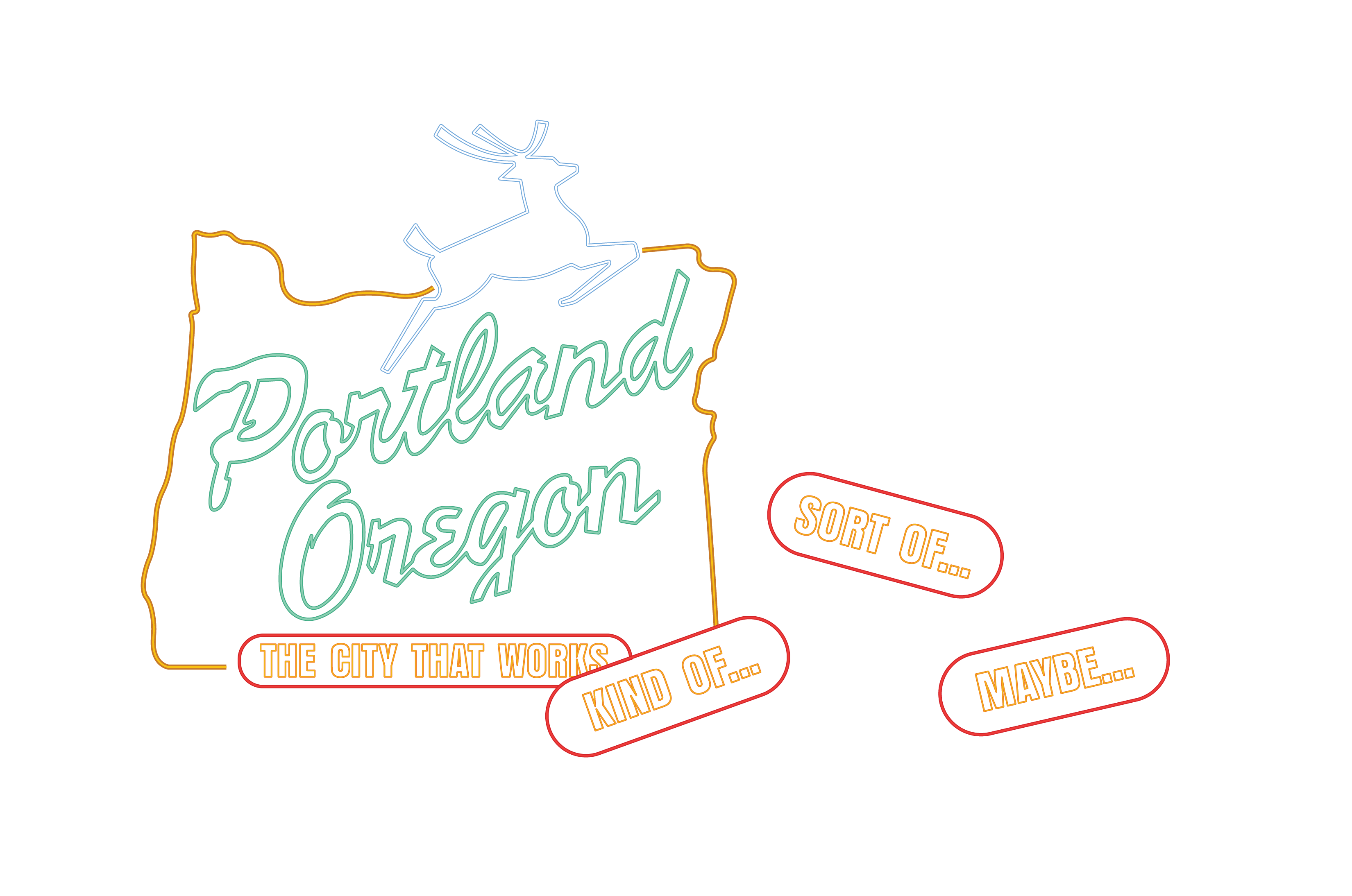BOISE, Idaho (AP)—After an 11-month standoff between the Oregon and Idaho state governments, Idaho is backing down on its blockade of Boise to allow Oregon residents and agricultural products to once again pass freely through the city.
Since mid-June 2024, Oregon and Washington air forces have engaged in a months-long supply airlift mission to Idaho’s former capital city, now Oregon territory, in what has been called the “Boise Blockade.” With the city deprived of all land-based supply routes, Oregon Governor Tina Kotek coordinated with Washington Governor Jay Inslee to supply the beleaguered city of Boise with necessary rations, most notably Oregon-grown potatoes.
As of the end of the blockade in May 2025, Oregon and Washington allied forces have flown over the city more than 250,000 times, with daily deliveries peaking at 12,941 tons. The supply planes, affectionately known to Boise residents as “spud shooters,” ensured a steady stream of Oregon potatoes in the besieged city.
The crisis began as an escalation of the so-called Potato Wars, a trade dispute between Oregon and Idaho regarding the sale of potatoes grown in counties formerly part of eastern Oregon under the “Grown in IdahoⓇ” seal. The Idaho Potato Commission, shortly after the state merger, unilaterally chose to approve use of the seal in all new Idaho counties.
Oregon appealed the decision to the Federal Trade Commission, which ultimately decided in favor of Idaho. Facing the loss of national potato prestige with potatoes still grown in Oregon, Gov. Kotek instituted on June 15, 2024 a punitive protectionist potato policy mandating the sale of Oregon-grown potatoes in all Oregon territories—including Boise, an Oregon exclave surrounded on all sides by Idaho—and banning the importation of Idaho-grown potatoes and potato products into Oregon.
In response, Idaho sued in federal court to dissolve and reconstitute the famous Ore-Ida company, located in Ontario, Idaho (formerly Oregon), as the Idaho Potato Company, further cementing the state’s monopoly on United States potato production.
Oregon then introduced a form of state-specific currency, the Beaver Buck, to Boise. This currency was only accepted as legal tender for Oregon-produced foodstuffs, most notably potatoes. The purpose of the currency reform, according to Oregon officials, was to wrest economic control of the city from Idaho, enable the introduction of Oregon-grown potato subsidies, and curb the city’s potato black market.
This brought the situation to a breaking point. Besides issuing their own currency, the Spudmark, Idaho blocked all major road, rail and canal links to Boise, thus starving it of electricity as well as a steady supply of essential food and gasoline.
On June 13, 2024, mere days before the start of the blockade, Oregon Secretary of State Shemia Fagan reported to Salem that “there is no practicability in maintaining our position in Boise and it must not be evaluated on that basis…. We are convinced that our remaining in Boise is essential to our prestige in the 50 states. Whether for good or bad, it has become a symbol of the Oregonian intent.”
Boise has been a point of contention between the two states since the historic Greater Idaho agreement of 2023. The territorial swap—which proved decisive in convincing Oregon to back the plan—was spurred by U.S. Rep. Earl Blumenauer (D-Ore.), who suggested in February of that year that he “would entertain a trade [of eastern Oregon] for Boise and Sun Valley.”
Blumenauer was a key figure in bridging the divide between the states, co-hosting talks with Sen. Mike Crapo (R-Ida.) between key figures from the Oregon and Idaho delegations, resulting in what were later dubbed the “Camp Sherman Accords.” These negotiations, held in remote Jefferson County and shielded from public view, became the impetus for the historic joint Oregon-Idaho vote on border agreements, followed by the successful vote in the U.S. Congress to pass the ORE-IDA (Oregon Reduction for Expanding Idaho’s Demographic Affluence) Act.
One Portland resident noted his opposition to the border change. “It just kinda looks weird on a map now, you know?” he said. “Washington’s still the same size and everything, but Oregon’s just this little thin strip on the coast, like New Jersey or Delaware or something. I mean, look at it. It’s like a long streak of nothing.”






